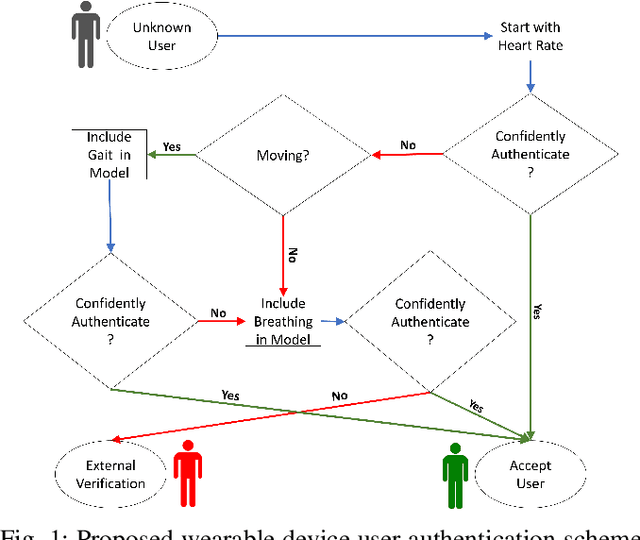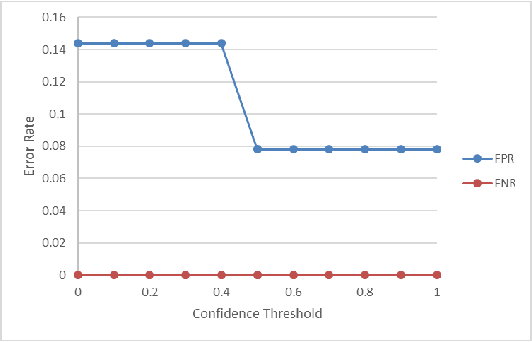Continuous Authentication of Wearable Device Users from Heart Rate, Gait, and Breathing Data
Paper and Code
Aug 25, 2020



The security of private information is becoming the bedrock of an increasingly digitized society. While the users are flooded with passwords and PINs, these gold-standard explicit authentications are becoming less popular and valuable. Recent biometric-based authentication methods, such as facial or finger recognition, are getting popular due to their higher accuracy. However, these hard-biometric-based systems require dedicated devices with powerful sensors and authentication models, which are often limited to most of the market wearables. Still, market wearables are collecting various private information of a user and are becoming an integral part of life: accessing cars, bank accounts, etc. Therefore, time demands a burden-free implicit authentication mechanism for wearables using the less-informative soft-biometric data that are easily obtainable from modern market wearables. In this work, we present a context-dependent soft-biometric-based authentication system for wearables devices using heart rate, gait, and breathing audio signals. From our detailed analysis using the "leave-one-out" validation, we find that a lighter $k$-Nearest Neighbor ($k$-NN) model with $k = 2$ can obtain an average accuracy of $0.93 \pm 0.06$, $F_1$ score $0.93 \pm 0.03$, and {\em false positive rate} (FPR) below $0.08$ at 50\% level of confidence, which shows the promise of this work.
 Add to Chrome
Add to Chrome Add to Firefox
Add to Firefox Add to Edge
Add to Edge